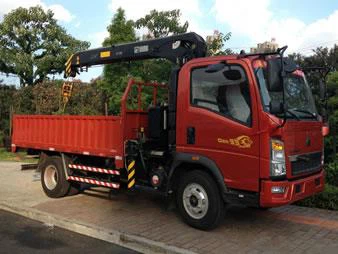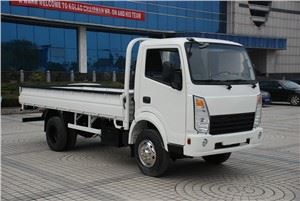Understanding Agitator Trucks: The Backbone of Construction and Ready-Mix Industry

Agitator trucks play a crucial role in the construction and ready-mix industries. These specialized vehicles ensure that concrete is transported efficiently while maintaining its quality. In this comprehensive article, we will explore the functionality, types, advantages, maintenance, costs, and best practices associated with agitator trucks, making it a must-read for industry professionals and enthusiasts alike.
What is an Agitator Truck?

An agitator truck, commonly called a concrete mixer truck, is a vehicle specifically designed to transport and mix concrete. Unlike standard trucks, these vehicles are equipped with a rotating drum that keeps the concrete in motion, preventing it from setting prematurely. This functionality is essential, as concrete must be used within a certain timeframe to ensure optimal performance.
Key Features of Agitator Trucks
- Rotating Drum: The primary feature that distinguishes agitator trucks from other types of vehicles. The drum continually spins to keep the concrete mixed.
- High Capacity: Agitator trucks come in various sizes, allowing for the transport of different quantities of concrete.
- Multiple Axles: Many agitator trucks have multiple axles for improved stability and weight distribution during transport.
- Water Tank: These trucks often include a built-in water tank to adjust the consistency of the mix during transport.
Types of Agitator Trucks
Agitator trucks come in several configurations to cater to various needs. Below are the most common types:
1. Standard Agitator Truck
The standard agitator truck features a single mixing drum and is most commonly used in commercial construction projects.
2. Front-Loading Agitator Truck
These trucks have a unique design that allows for easy loading and unloading. They are often used in projects with limited space for maneuvering.
3. Rear-Discharge Agitator Truck
This type brings the concrete to the rear and allows for easier distribution at the job site. They are ideal for larger operations where precise pouring is required.
4. Truck-Mounted Mixers
Truck-mounted mixers combine the capabilities of both a mixer and a truck, making them versatile for various applications, including smaller residential projects.
5. Specialized Agitator Trucks
Some trucks are tailored to specific needs, including those designed for fine aggregates, shotcrete, or mixing additives.
Advantages of Using Agitator Trucks
Employing agitator trucks in concrete transportation provides several advantages:
1. Quality Maintenance
With the continuous mixing of concrete, the quality is preserved, ensuring that the final product meets the required standards.

2. Increased Efficiency
Agitator trucks allow for faster delivery of concrete, reducing the downtime associated with manual mixing and transportation.
3. Versatility
These trucks can transport different types of mixtures, accommodating various construction needs and requirements.
4. Cost-Effectiveness
Businesses can save money through bulk transport and reduced labor costs by using agitator trucks as opposed to traditional mixing methods.
How to Choose the Right Agitator Truck
Selecting the appropriate agitator truck is essential for maximizing efficiency. Consider the following factors:
1. Capacity Requirements
Determine the volume of concrete required for the project. Agitator trucks typically range from 3 to 16 cubic meters in capacity.
2. Project Type
Understand whether the project is large-scale or small, as different trucks are better suited for various applications.
3. Accessibility
Consider the layout of the job site. For tight spaces, a front-loading truck may be more suitable than a standard model.
4. Local Regulations
Be aware of any local regulations or restrictions regarding the operation of agitator trucks in your area.
Best Practices for Operating Agitator Trucks
To ensure optimal performance and safety when operating agitator trucks, adhere to the following best practices:
1. Pre-Trip Inspection
Before starting, conduct a thorough inspection of the vehicle, including the drum, brakes, lights, and tire condition.
2. Keep Drum Clean
Regularly clean the drum to prevent premature setting of leftover concrete. This task will also extend the life of the truck.
3. Monitor Mixing Conditions
Pay attention to the temperature and humidity, as important factors influencing the setting time of concrete.
4. Maintain Safe Operating Speeds
Drive cautiously, especially on uneven terrain or while turning, to maintain the vehicle’s stability.
Maintenance Tips for Agitator Trucks
1. Regular Fluid Checks
Monitor and maintain appropriate levels of hydraulic fluids, engine oil, and coolant.
2. Drum Maintenance
Inspect the drum for any signs of wear and tear, and ensure that it is properly lubricated.
3. Brake System Checks
The brake system must be regularly inspected and serviced to ensure safety during operation.
4. Tire Maintenance
Inspect tires for proper inflation and tread wear, replacing them when necessary.
Cost of Agitator Trucks
The price of agitator trucks can vary based on several factors, including size, capacity, and manufacturer. Below is a general breakdown of costs:
| Type of Agitator Truck | Price Range (USD) |
|---|---|
| Standard Agitator Truck | $100,000 – $200,000 |
| Front-Loading Agitator Truck | $120,000 – $220,000 |
| Rear-Discharge Agitator Truck | $90,000 – $180,000 |
| Truck-Mounted Mixers | $80,000 – $150,000 |
| Specialized Agitator Trucks | $100,000 – $250,000 |
Examples of Applications for Agitator Trucks
Agitator trucks are utilized in various scenarios, each showcasing their importance:
1. Large-Scale Construction Projects
In high-rise building construction, agitator trucks provide continuous concrete supply, ensuring efficient workflow.
2. Road Construction and Repair
Agitator trucks are crucial for paving and repairing roads, providing a steady supply of ready-mix concrete.
3. Residential Projects
For residential sites, such as home foundations and driveways, agitator trucks offer flexibility and reliability in concrete delivery.
4. Civil Engineering Projects
Infrastructure projects, like bridges and tunnels, demand consistent concrete quality, which agitator trucks supply almost effortlessly.
Frequently Asked Questions (FAQs)
1. How does an agitator truck work?

An agitator truck works by transporting concrete in a rotating drum, ensuring that it remains mixed and usable upon arrival at the job site.
2. What types of concrete can be transported by agitator trucks?
Agitator trucks can transport various types of concrete, including normal mix, high-strength, and lightweight concrete mixtures.
3. How long can concrete stay in an agitator truck?
Concrete can remain in an agitator truck for up to 90 minutes, depending on weather conditions and road parameters.
4. What are the key components of an agitator truck?
The main components include the mixing drum, engine, chassis, water tank, and hydraulic system, which all work together to facilitate concrete mixing and transportation.
5. Is it safe to drive an agitator truck?
Yes, as long as the operator is trained and follows all safety protocols and regulations related to vehicle operation.
6. Can I rent an agitator truck?
Yes, many companies offer rental options for agitator trucks, making it easy for businesses to access the required vehicles without upfront capital investment.
